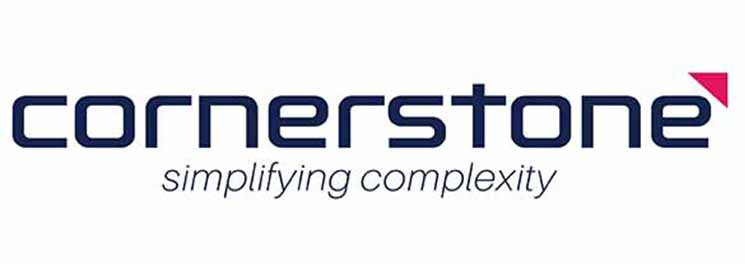
Want to Succeed with Data-Driven Transformation? Make Sure You’ve Defined the Need.
If you’re undertaking a data-driven transformation project, don’t dive into the business case without getting back to basics with a needs assessment.
Business cases for significant transformation projects have a challenging reputation, perhaps with good reason. They’re notoriously difficult to get right, largely for one reason: change. Fundamentally, business cases must make the case for change, and change usually means resistance. The larger and more significant the change (or transformation), the more resistance you can expect.
This month, we’re taking a deep dive into business cases, particularly for organisational-wide, data-driven transformation projects. We’ll take a look at when business cases go bad, building an ROI narrative for the business case and some practical tips for preparing the business case.
In this first article, we’ll focus on some of the work that needs to happen before you move to preparing your business case. Critically, that includes conducting an initial needs assessment to determine the requirement for change. It sounds like strategy 101, but without doing the discovery work, you’re working on your own assumptions – which may or may not be correct.
To illustrate this, we take a look at the example of Integrated Business Planning (IBP) methodology. IBP is the next-generation in sales and operations (S&OP) planning methodology. It aligns a company’s long-term strategy and business goals with all operational departments across the business – finance, supply chain, product development, sales, marketing and so on.
IBP: The gold standard?
As the current gold standard for whole-of-business planning, we hear of a lot of companies that are moving (or trying to move) towards IBP methods – with mixed results.
Why the mixed results, if IBP methodology is gold-standard? Simply because gold-standard is not suitable for every organisation. Or at least, it’s not suitable right now. It all comes down to a range of internal and external factors, including organisational maturity and whether or not you’ve built a compelling case for change, that is aligned with the overarching strategy.
The move to IBP methodology is almost always going to require significant transformation. Perhaps your organisation doesn’t need significant transformation right now. It could be a case where some incremental tweaks and smaller projects are more appropriate.
In that case, preparing a business case to move to IBP methodology represents a significant waste of time and resources, without solving anything. An initial needs assessment will underpin and inform the subsequent business case.
What does a needs assessment involve?
The desired outcome of a needs assessment is fairly straightforward: defining the current state-of-play (A) and desired state-of-play in a given period of time (B), then articulating what is required to get from A to B.
It’s also about understanding the environment and its suitability for change. Taking the IBP example: when we work on these types of projects, there are certain elements that must be present to increase the likelihood of project success. For example, the company must have documented longer-term strategic goals that are well understood and accepted at the executive leadership level.
Another key consideration is whether the company has moved (or is moving) away from the “working in silos” approach, where departmental planning and reporting takes place in a disconnected fashion. If the company lacks long-term strategic direction or is still predominantly a siloed organisation, with no appetite from leadership to change, it’s highly likely a best-in-class IBP deployment will fail or disappoint in the long run.
To IBP, or not to IBP?
As an example of this, the CFO of Company X approached us with an interest in moving to Integrated Business Planning (IBP) methodology across the business. They knew the company’s supply chain department had been using IBP, with promising results, for the last few years. The CFO strongly believed IBP could offer benefits across Company X’s broader operations.
The CFO approached us for support to raise the business case for an IBP system to be deployed across the company. One of the key outcomes of the business case was securing a significant amount of CAPEX and OPEX expenditure to support the required changes across systems, people and processes.
Given the level of expenditure being requested, the business case would need to be presented to both the executive and the board. With such a high level of scrutiny, the CFO knew they had one opportunity to get the business case right.
Rather than proceed directly with the IBP business case, our recommendation for Company X was to conduct a needs assessment to start building the narrative for change. This, in turn, would determine the scope of the business case and investment required.
We gathered a range of inputs to support the process and conducted a Strengths, Weaknesses, Opportunities and Threats (SWOT) analysis of the overall environment. In the case of Company X, we determined IBP was indeed the best solution, and they were able to move quickly to the business case phase.
On the other hand, some companies might be better off starting with smaller, incremental improvement projects rather than a more fulsome transformation. It’s even possible that some of these smaller projects may not require business cases, so you can move forward more efficiently and build the case for change as you go.
In short – you can’t know what you don’t know, so if you’re writing your business case without undertaking a higher-level needs analysis, you could be writing it in the dark.
We are enablers of change and transformation in Financial Planning & Analytics, Information Management, Supply Chain, Management Consulting, Project Management, and Managed Application Services.
As an independent partner with broad experience across a range of industries, we can help you define the required change and translate the need into a winning business case. Reach out here to have a discussion today or call 1300 841 048.





